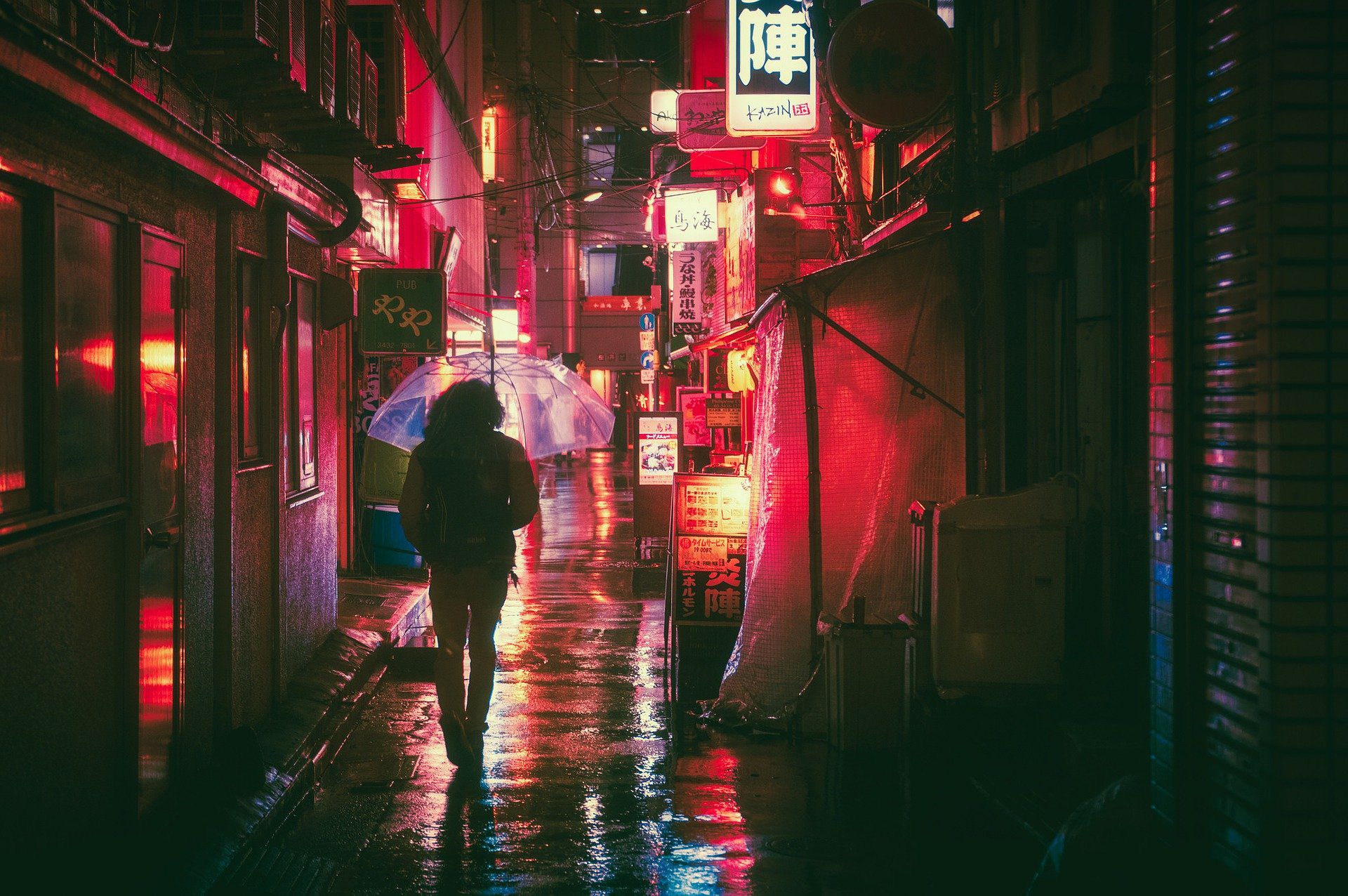his piece is based on this BBC Reel video produced by Andreas Hartman, and is a text reversion of this radio piece for the Rulebreakers series from BBC World Service in collaboration with the Sundance Institute. Adapted by Bryan Lufkin.
All over the world, from the US to Germany to the UK, some people decide to disappear from their own lives without a trace – leaving their homes, jobs and families in the middle of the night to start a second life, often without ever looking back.
In Japan, these people are sometimes referred to as “jouhatsu”. That’s the Japanese word for “evaporation”, but it also refers to people who vanish on purpose into thin air, and continue to conceal their whereabouts – potentially for years, even decades.
“I got fed up with human relationships. I took a small suitcase and disappeared,” says 42-year-old Sugimoto, who’s just going by his family name for this story. “I just kind of escaped.” He says that back in his small hometown, everybody knew him because of his family and their prominent local business, which Sugimoto was expected to carry on. But having that role foisted upon him caused him such distress that he abruptly left town forever and told no one where he was going.
From inescapable debt to loveless marriages, the motivations that push jouhatsu to “evaporate” can vary. Regardless of their reasons, they turn to companies that help them through the process. These operations are called “night moving” services, a nod to the secretive nature of becoming a jouhatsu. They help people who want to disappear discreetly remove themselves from their lives, and can provide lodging for them in secret whereabouts.
“Normally, the reason for moving is something positive, like entering university, getting a new job or a marriage. But there’s also sad moving – for example, like dropping out of university, losing a job or escaping from a stalker,” says Sho Hatori, who founded a night-moving company in the 90s when Japan’s economic bubble burst. At first, he thought financial ruin would be the only thing driving people to flee their troubled lives, but he soon found there were “social reasons”, too. “What we did was support people to start a second life,” he says.
Sociologist Hiroki Nakamori has been researching jouhatsu for more than a decade. He says the term ‘jouhatsu’ first started being used to describe people who decided to go missing back in the 60s. Divorce rates were (and still are) very low in Japan, so some people decided it was easier to just up and leave their spouses instead of going through elaborate, formal divorce proceedings.
“In Japan, it’s just easier to evaporate,” says Nakamori. Privacy is fiercely protected: missing people can freely withdraw money from ATMs without being flagged, and their family members can’t access security videos that might have captured their loved one on the run. “Police will not intervene unless there’s another reason – like a crime or an accident. All the family can do is pay a lot for a private detective. Or just wait. That’s all.”
‘I was shocked’
For the loved ones who get left behind, the abandonment – and resultant search for their jouhatsu – can be unbearable.
“I was shocked,” says a woman who’s remained anonymous, and whose 22-year-old son went missing and hasn’t contacted her since. “He failed after quitting his job twice. He must have felt miserable with his failure.” She drove to where he was living, searched the premises and then waited in her car for days to see if he showed up. He never did.
She says the police haven’t been helpful, and says they told her they could only get involved if it was a suspected suicide. But since there was no note, they won’t help.
“I understand there are stalkers – information can be misused. This is a necessary law, perhaps. But criminals, stalkers and parents who cannot search for their own children? All of them are treated the same way due to the protection. What is this?” she says. “With the current law, without money, all I can do is check if [a] dead body is my son – the only thing left for me.”

The disappeared
For the jouhatsu themselves, feelings of sadness and regret stick with many of them long after they leave their lives behind.
“I constantly have a feeling that I’ve done something wrong,” says Sugimoto, the businessman who left his wife and kids in the small town. “I haven’t seen [my children] in a year. I told them I’m on a business trip.” His only regret, he says, was leaving them.
Sugimoto is currently staying in a home tucked away in a residential district of Tokyo. The night-moving company that’s housing him is run by a woman called Saita, who’s also going by her family name only to preserve anonymity. She was a jouhatsu herself, who went missing 17 years ago. She ‘disappeared’ after being in a physically abusive relationship, and says “in a way, I’m a missing person – even now.”
“I have various types of clients,” she continues. “There are people who run away from serious domestic violence or ego and self-interest. I don’t judge. I never say, ‘Your case is not serious enough’. Everybody has individual struggles.”
For people like Sugimoto, her company helped him address those struggles of his own . But even though he managed to disappear, it doesn’t mean that traces of his old life don’t linger. “Only my first son knows the truth. He’s 13 years old,” he says. “The words I can’t forget are, ‘What Dad decided is Dad’s life, and I can’t change it’. It sounds more mature than me, doesn’t it?”
Japan’s events industry
How has Japan’s business event industry adapted to Covid-19?

Leave a Reply